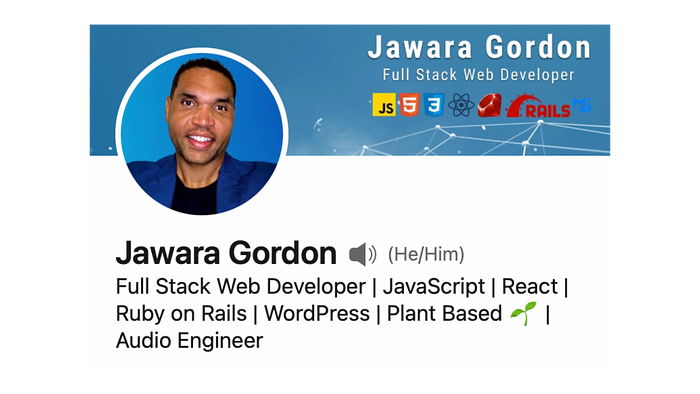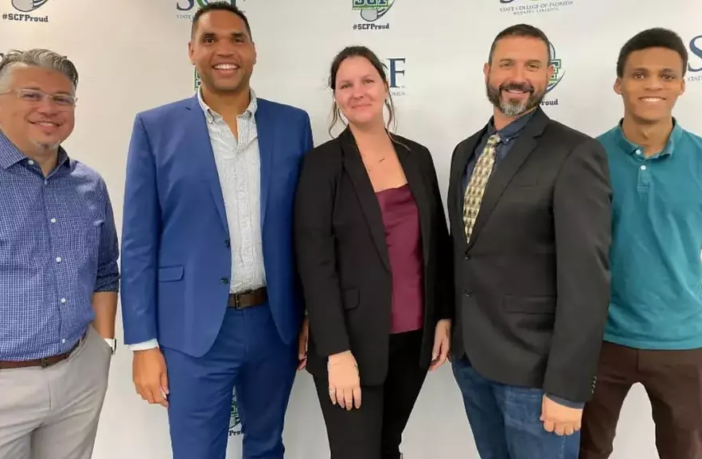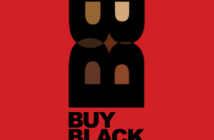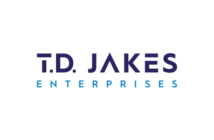This article was first published by Jawara Gordon on Medium.
“Congratulations to the Trailblazers!” she said as we received our certificates.
Standing in a room full of supporters my cohort and I celebrated a tremendous victory. We completed a grueling, six-month-long, software engineering bootcamp which tested us in every way imaginable.
We were the survivors, the lucky ones who made it to the finish line. As the lights faded and we said our goodbyes, I couldn’t help but wonder what would happen next.
Having gone from almost zero coding experience to building full CRUD apps was a huge accomplishment — but how does that translate into a job? Leaving the safety of my instructors and classmates behind, I walked through those doors one last time knowing that this is when the real work began.
Taking Time to Recover
The first thing I did after graduating was… take the weekend off!
No coding, no interview prep, or resume proofing. I took a couple of days to spend time with my son, focus on mindfulness, and simply enjoy life.
It would’ve been nice to take more time to recover but I was running out of money — and fast.
I applied for and received financial aid to attend my program. I saved every dollar I could before starting bootcamp (not an easy task as a single parent.) I worked side hustles, helped out family members, and babysat for friends to make ends meet while I was enrolled.
I had enough money to last exactly two months before I was forced to take a job from my backup list which included: IT help desk, delivery driver, phone repair, and bookstore employee.
As the sun set on the last day of my recovery weekend, I knew it was time to make a plan. I set my alarm for 5:00 am and prepared to hit the ground running as I turned the page on this new chapter.
Preparing For the Job Search
The bootcamp program I chose offered career prep and job assistance. They made no guarantees about finding us work, but they did introduce us to a large network of industry professionals, mentors, and recruiters.
I knew that having a strong network was important because I heard it echoed in the coding podcasts I listened to and at the virtual tech conferences I attended in the months leading up to my program’s start date.
I made new social media accounts that only followed industry leaders or anyone willing to offer advice about their experiences. These were my “anytime” mentors, they provided endless amounts of information about how they became successful for free, whenever I wanted it.
Learning to code taught me that there are systems in place that you can follow to find the solution to almost any problem. So, why not apply that strategy to finding a job?
It was time to create a plan — and I didn’t have to start from scratch because there was already a framework to use.
This is exactly what I did to find a developer job three weeks after graduating:
It was time to create a plan using all the amazing advice I had been given. The first step was to write it all down to help visualize exactly what I wanted to accomplish.
Action Plan:
I started by creating an action plan. A simple document that allows you to create SMART goals.
Resume:
Next, I worked on a resume that highlighted my strengths as a software engineer. I didn’t have any experience in this industry, but I was a career changer with a lot of soft skills.
I hadn’t updated my resume in a very long time so I researched strategies for writing a great developer resume, then had it proofed by friends, instructors, and recruiters. Here’s the current version: Resume.
Social Media:
I kept hearing how important it was to create a personal brand with graphics and a headshot. So I took a few headshots with my phone, then added a background and made a profile banner. I used that same branding across all social accounts for visibility.
LinkedIn:
Added the “Open to Work” banner to my LinkedIn profile.Updated my LinkedIn experience section to match my resume with ABC = XYZ formatting.Started connecting with recruiters I met from my bootcamp.Joined developer communities and started to connect with active participants in comment threads.
Twitter:
Followed hosts and guests from coding podcasts.Joined communities offering support for junior developers.Attended Twitter Spaces hosted by mentors and industry leaders.
Facebook:
I’m not active on FB but I updated my bio and profile pic to match my other social media accounts.Made a “Call to Action” asking friends to support my new career change by sending possible leads to my website and LinkedIn account.
Instagram:
Cross-posted my bootcamp graduation photos.Made a “Call to Action” asking music industry contacts to support my career change by helping me find a new job.
Portfolio Website:
Added projects and optimized my portfolio website to match the branding from my social media accounts. (one of my goals for 2023 is to make this site amazing!) JawaraGordon.comUploaded a copy of my resume along with links for social media.
Pro Tip: Having a personal website with your name as the URL will bump you to the top of searches when potential employers look for you.
Projects:
Accepted a freelance job creating wireframes for one of my classmates.Took on the role of SCRUM master for a website redesign project with my classmates that was offered to us through our bootcamp network.Created Kanban boards to track the progress of these projects.Posted about these projects and their progress across all social media.

The Application Process
I had a solid plan for the types of jobs I was looking for and some great resources — it was time to start applying!
My goal for this week was to schedule calls with the recruiters I had been speaking with, apply to the jobs I had researched, and follow up with personal contacts who reached out after seeing my posts.
Cold Applications:
These jobs were all heavily researched and targeted based on personal fit:
Applied to a Junior Full-Stack position with IBM.Applied to a Junior Front-End position with Spotify.Applied to a Junior Back-End position with Oracle.
Warm Leads from Recruiters and Contacts:
These leads were direct offers from recruiters and mentors:
Applied to a Tampa Bay Tech firm.Applied to a blockchain FinTech company.Applied to the Amazon returnship program.
Hot Connections from my Network:
These opportunities were direct leads from my network that did not require formal applications:
Spoke with two local small business owners about creating web dev positions at their companies.Talked with a bootcamp connection about accepting contract work for their tech company.Met with a local tech company with global reach to see where I could fit on their team.Followed up with a bootcamp network lead about possible contract work for a local agency.
The Interview Process
I’m sure you can guess the outcome of those applications.
Cold Calls = 0 interviews
Warm Leads = 1 interview
Hot Connections = 5 interviews
The result of those 6 interviews were 2 job offers, 2 offers for coding challenges, and 2 slightly awkward conversations about how I would be a great candidate in 5–10 years.
I accepted the take-home coding challenges which resulted in 1 excellent score from a tech stack I was familiar with but completely self-taught — and another decent score from a tech stack that I would need to learn a lot about.
At the end of this week, I found myself with 4 offers on the table. Here’s how I ranked them based on payscale and growth potential:
ApprenticeshipFull-Stack Developer (contract)App Developer (contract)Web Designer and Developer
This week began with massive layoffs across the tech industry. Many of the companies I applied to reduced their workforces by large percentages across the board. Needless to say, I was spooked.
I felt the pressure to make a decision about which job to take and how it would impact my life in the long term.
I spoke with friends, family, and mentors about which job offer they thought would be the best choice.
Things got even more interesting when one of the contract jobs offered me a full-time position after an internal review of my code challenge.
It was time to negotiate the details of each of these offers, weigh the pros and cons, then make a final decision.
Knowing Your Worth
Negotiating salary, benefits, and schedule are vital steps before accepting any job. Having worked for myself as an independent contractor in the music industry, I had turned negotiating into an art form.
Tips for becoming a successful negotiator:
Do Your Research
Research the position you’re applying for. Ask questions during the interview process about salaries, compensation packages, and expectations. Check with sites like Glassdoor and Payscale if possible — or ask contacts in your network what they made in similar roles.
Be Confident
Never accept an initial offer without expressing feedback. Make a counteroffer if the salary or benefits package is anything less than ideal. Be professional when you make your request and then stop talking. Don’t offer a disclaimer or any qualifiers. Support your position with data if you’re asked — but do not say another word unless you are.
Show Value
It’s crucial to know your worth and what you bring to the table. Consider your experience, soft skills, education, and the market value of your position. The hiring manager may be speaking with lots of candidates, be sure to highlight the unique experiences that only you can provide to the team.
Making a Decision
I had multiple follow-up calls with hiring managers, CTOs, PMs, Senior Devs, and business owners. Based on these calls I was able to narrow my decision down to 2 companies. Making this final decision was one of the toughest choices of my life.
Ultimately, it came down to choosing the option that offered the most stability to a single parent who was changing careers and looking to create a strong foundation for long-term growth.
I’m very happy with the choice I made knowing that I did so with patience and guidance every step of the way.
Showing Appreciation
Before signing my offer sheet, I made sure to thank each of the other companies that extended offers. I provided them with feedback about their interview process when asked and emailed each of my contacts to personally thank them for the connection.
Something I learned in my previous career is that you never know who you might run into later in life as a boss or co-worker. It’s important to treat everyone with kindness and respect because you may cross paths sooner than you think.
Summary
Congratulations if you also completed a software engineering bootcamp! It’s an incredible accomplishment that you’ll lean on for the rest of your life. However, the real challenge begins when it’s time to find a job with almost no experience.
Don’t forget to take a few days off before jumping into the job hunt. Make sure to create an action plan before you start. Take time to research the companies you want to work for and the compensation they offer. Use the resources provided in this article to create customized resumes while optimizing your online presence to match. Showcase your passion by highlighting your personal projects and problem-solving skills by building in public.
I can’t guarantee you’ll find a job in just three weeks, but starting the process early with a strong network was the key to my success. As you can see, cold applying to positions got me nowhere. Relying on my mentors and personal contacts was vital to finding a job in this often turbulent market.
Remember:
Companies love to hire people they know — because when you know someone, you can start to trust them. So make yourself visible!
This article was first published by Jawara Gordon on Medium.


